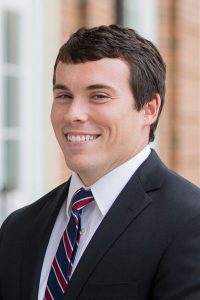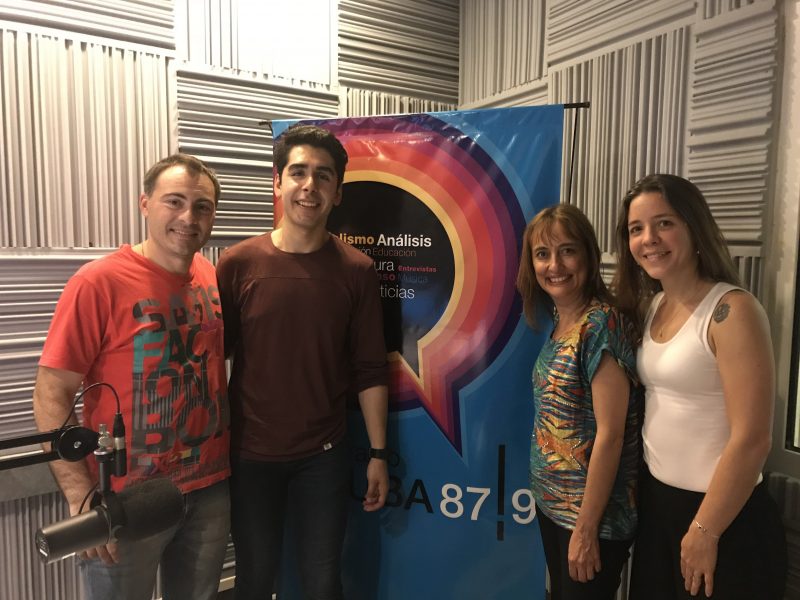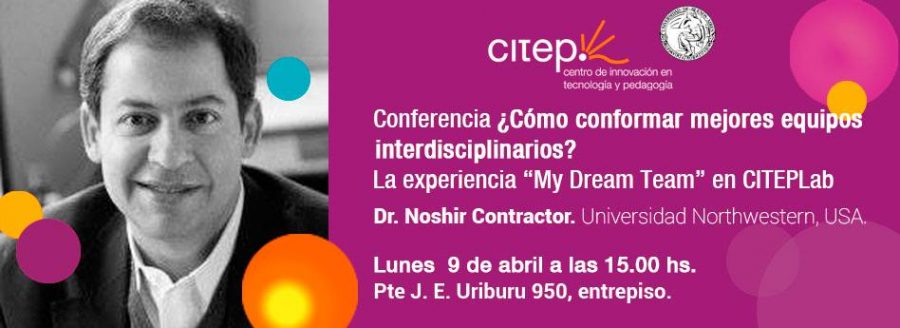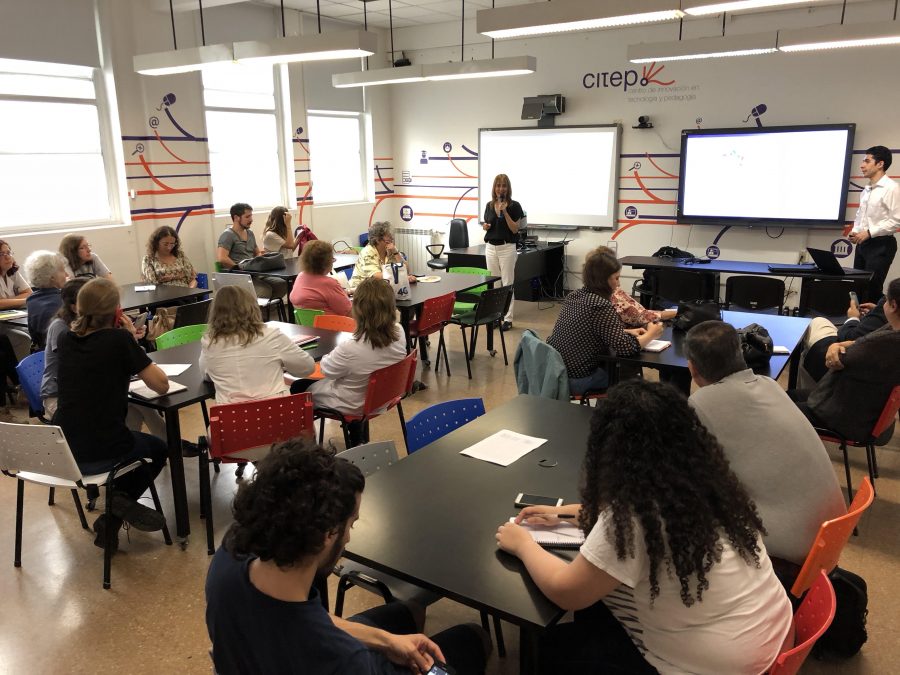
Aaron M. Schecter, SONIC alumnus and Ph.D. in Industrial Engineering and Management Science, received the 2018 J. Richard Hackman Award for his Ph.D. dissertation at INGroup 2018. The conference recognizes recent graduate students whose dissertation shows the greatest potential to advance the study of groups.
SONIC Lab presented at INGRoup 2018
On July 19-21, Professor Noshir Contractor, the SONIC doctoral students Diego Gómez-Zará and Brennan Antone, and the SONIC Research Assistant Professor Alina Lungeanu presented at the 13th Annual INGRoup Conference held in Bethesda, Maryland.
Kyosuke Tanaka and Diego Gómez-Zará attend SICSS Chicago 2018
The SONIC Ph.D. students, Kyouske Tanaka and Diego Gómez-Zará, participated at the Summer Institute in Computational Social Science, in Chicago. The purpose of the Summer Institute was to bring together graduate students and early career researchers in both social science and data science. Content included live-streamed lectures from the main site at Duke University as well as guest speakers who presented on cutting-edge computational research and methods. Topics covered include text analysis, digital data collection, experimental design, non-probability sampling, agent-based modeling, and ethics.
How network theory predicts the value of Bitcoin
A recent research by Spencer Wheatley at ETH Zurich in Switzerland and a few colleagues shows that the key measure of value for cryptocurrencies is the network of people who use them. What’s more, they say, once Bitcoin is valued in this way it becomes possible to see when it is overvalued and perhaps even to spot the telltale signs that a market crash is imminent.
Read the complete article here: https://arxiv.org/abs/1803.05663
And the article published by MIT Technology Review here: https://www.technologyreview.com/s/610614/how-network-theory-predicts-the-value-of-bitcoin/
Diego Gómez-Zará and Silvia Andreoli shared MDT’s results at Radio UBA
The Ph.D. student, Diego Gómez-Zará, and the CITEP’s Director of Projects, Silvia Andreoli, presented the findings and results of the My Dream Team case study elaborated at the Universidad de Buenos Aires, Argentina. Both scholars were interviewed in the program “Académicamente” transmitted by the radio of the university. The objective of this program is to generate a space for sharing and diffusing research projects of the university. The interview was on April 10th.

SONIC Lab presented the results of My Dream Team case study at CITEP, Argentina.
On April 9th, Professor Noshir Contractor and his Ph.D. student Diego Gómez-Zará presented the results of the team assembly case study conducted at the Center for Technological and Pedagogical Innovation (CITEP – Centro de Innovación en Tecnología y Pedagogía). The talk was given at the University of Buenos Aires in Buenos Aires, Argentina. Noshir and Diego presented how the participants of this academic program searched and invited others to assemble teams. The main results explain the relevant features for creating effective teams and demonstrate how My Dream Team –a web-based teaming search platform– facilitate the formation of teams in educational contexts.


Diego Gómez-Zará presents at INGroup 2018
Diego Gómez-Zará is going to attend the 13th Annual INGRoup Conference on July 18-22, in Washington, DC. He will present one of the My Dream Team project’s publications called “Social Cognition and Team Assembly: Competence, Warmth, or Embeddedness,” co-authored with Jacqueline Ng, Marlon Twyman, Silvia Andreoli, Leslie DeChurch, and Noshir Contractor.
Jacqueline Ng and Diego Gómez-Zará presented at the ATLAS’s Teams Research Incubator Weekend
Jacqueline Ng, Ph.D. candidate, and Diego Gómez-Zará, Ph.D. student, presented their current research at the ATLAS’s Teams Research Incubator for doctoral students and junior faculty, in Evanston, IL
On March 17th, Jacqueline presented “Information sharing in online teams: How information processing interventions affect team discussions” in a session titled “Multilevel Perspectives on Teams.”
Then, on March 18th, Diego presented his work on team recommender systems: “Social Cognition and Team Assembly:
Competence, Warmth, or Embeddedness.” The session was titled “Perceptions & Teams.”
Diego Gómez-Zará presents at Kellogg Enlace
On January 30th, 2018, the Ph.D. Student Diego Gómez-Zará presented at the Kellogg School of Management at Northwestern University. This talk was organized by the program ENLACE
Diego’s talk was titled “The Role of Social Movements in Twitter: Evidence from the Chilean Student Movement.” He presented the current role of organizations in social media. In the digital era, organizations have become active actors, where they must motivate, interact, and engage with their audiences permanently.
Population structured by witchcraft beliefs
Anthropologists have long argued that fear of victimization through witchcraft accusations promotes cooperation in small-scale societies. Others have argued that witchcraft beliefs undermine trust and therefore reduce social cohesion. However, there are very few, if any, quantified empirical examples demonstrating how witchcraft labels can structure cooperation in real human communities. Here we show a case from a farming community in China where people labelled zhu were thought capable of supernatural activity, particularly poisoning food. The label was usually applied to adult women heads of household and often inherited down the female line. We found that those in zhuhouseholds were less likely to give or receive gifts or farm help to or from non-zhu households; nor did they have sexual partnerships or children with those in non-zhu households. However, those in zhuhouseholds did preferentially help and reproduce with each other. Although the tag is common knowledge to other villagers and used in cooperative and reproductive partner choice, we found no evidence that this assortment was based on cooperativeness or quality. We favour the explanation that stigmatization originally arose as a mechanism to harm female competitors. Once established, fear that the trait is transmissible may help explain the persistence of this deep-rooted cultural belief.
Source: Nature
